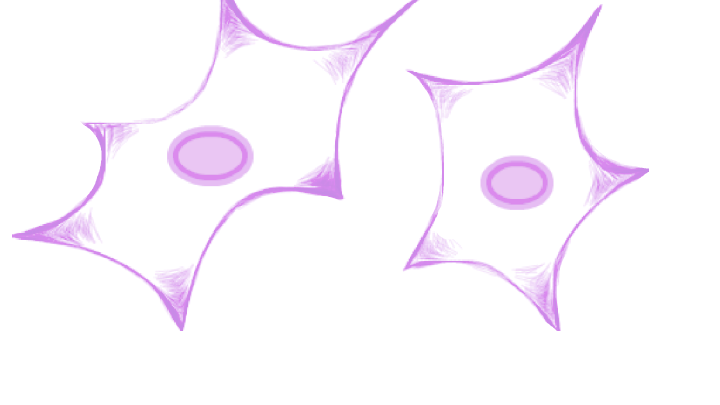Cell Senescence Entries for ATG5
- Cell Types
- Foreskin fibroblast, Lung fibroblast
- Cell Lines
- BJ, IMR-90
- Cancer Cell?
- No
- Method
- Knockdown
- Type of senescence
- Oncogene-induced
- Senescence Effect
- Inhibits
- Primary Reference
- Young et al. (2009) Autophagy mediates the mitotic senescence transition. Genes Dev 23(7)798-803 (PubMed)
ATG5 Gene Information
- HGNC symbol
- ATG5
- Aliases
- APG5; APG5L; ASP; hAPG5
- Common name
- autophagy related 5
- Entrez Id
- 9474
- Description
- The protein encoded by this gene, in combination with autophagy protein 12, functions as an E1-like activating enzyme in a ubiquitin-like conjugating system. The encoded protein is involved in several cellular processes, including autophagic vesicle formation, mitochondrial quality control after oxidative damage, negative regulation of the innate antiviral immune response, lymphocyte development and proliferation, MHC II antigen presentation, adipocyte differentiation, and apoptosis. Several transcript variants encoding different protein isoforms have been found for this gene. [provided by RefSeq, Sep 2015].
ATG5 Ontologies
- Gene Ontology
-
Process: GO:6914; autophagy
GO:16236; macroautophagy
GO:6915; apoptotic process
GO:45; autophagosome assembly
GO:2376; immune system process
GO:43687; post-translational protein modification
GO:1902017; regulation of cilium assembly
GO:422; autophagy of mitochondrion
GO:6995; cellular response to nitrogen starvation
GO:60548; negative regulation of cell death
GO:6497; protein lipidation
GO:6501; C-terminal protein lipidation
GO:44804; autophagy of nucleus
GO:50687; negative regulation of defense response to virus
GO:1901096; regulation of autophagosome maturation
GO:1904973; positive regulation of viral translation
GO:35973; aggrephagy
GO:32480; negative regulation of type I interferon production
GO:45824; negative regulation of innate immune response
GO:1974; blood vessel remodeling
GO:2718; regulation of cytokine production involved in immune response
GO:9267; cellular response to starvation
GO:9410; response to xenobiotic stimulus
GO:9620; response to fungus
GO:10040; response to iron(II) ion
GO:19883; antigen processing and presentation of endogenous antigen
GO:31397; negative regulation of protein ubiquitination
GO:39689; negative stranded viral RNA replication
GO:42311; vasodilation
GO:43066; negative regulation of apoptotic process
GO:45060; negative thymic T cell selection
GO:48840; otolith development
GO:50765; negative regulation of phagocytosis
GO:51279; regulation of release of sequestered calcium ion into cytosol
GO:55015; ventricular cardiac muscle cell development
GO:60047; heart contraction
GO:61684; chaperone-mediated autophagy
GO:61739; protein lipidation involved in autophagosome assembly
GO:70257; positive regulation of mucus secretion
GO:71500; cellular response to nitrosative stress
GO:1902617; response to fluoride
GO:2000377; regulation of reactive oxygen species metabolic process
GO:2000378; negative regulation of reactive oxygen species metabolic process
GO:2000619; negative regulation of histone H4-K16 acetylation
Cellular component: GO:5737; cytoplasm
GO:16020; membrane
GO:34045; phagophore assembly site membrane
GO:5930; axoneme
GO:5829; cytosol
GO:30670; phagocytic vesicle membrane
GO:5776; autophagosome
GO:34274; Atg12-Atg5-Atg16 complex
GO:1990234; transferase complex
GO:32991; protein-containing complex
GO:30424; axon
GO:44233; mitochondria-associated endoplasmic reticulum membrane
Hide GO termsFunction: GO:5515; protein binding
Homologs of ATG5 in Model Organisms
- Caenorhabditis elegans
- atg-5
- Danio rerio
- atg5
- Drosophila melanogaster
- Atg5
- Mus musculus
- Atg5
- Rattus norvegicus
- Atg5
- Saccharomyces cerevisiae
- ATG5
- Schizosaccharomyces pombe
- atg5
In other databases
- GenAge model organism genes
- GenDR gene manipulations
- A homolog of this gene for Saccharomyces cerevisiae is present as ATG5
External links
- OMIM
- 604261
- Ensembl
- ENSG00000057663
- Entrez Gene
- 9474
- UniGene
- 486063
- 1000 Genomes
- 1000 Genomes
- HPRD
- GenAtlas
- ATG5
- GeneCards
- ATG5
